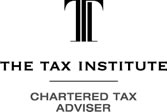Have you been caught up in the cryptocurrency hype of recent years and embarked on the cryptocurrency journey? Has the thought of the potential return on your investment been impossible to ignore and you’ve put some of your hard-earned savings into digital currencies?
Not taken the plunge yet, but thinking about doing so?
If this is you, we suggest you pull into the station for 5 minutes and read on.
What is Cryptocurrency?
Cryptocurrency is a digital or virtual currency that uses an online ledger based on blockchain technology and is secured using cryptography.
Just like more traditional currencies or securities (e.g. shares; bonds) you can buy and sell cryptocurrencies, or they may sometimes be exchanged online for goods or services.
There are thousands of cryptocurrencies available online. Bitcoin is the most well-known and was launched in 2009. Other more common virtual currencies include Ethereum, Litecoin and Bitcoin Cash.
Some companies issue crypto tokens that are special kinds of virtual currency representing an asset or utility and are often used to raise funds for crowd sales.
Digital currencies are stored, sent and received via a cryptocurrency wallet.
Tax Implications of Dealings in Cryptocurrency
So you’ve finally got you head around all (or most) of the crypto jargon – but do you understand the tax implications of trading or investing in these virtual products?
Cryptocurrencies generally function outside of traditional banking and government systems but do not escape the taxman!
For the earlier dabblers, the tax consequences of transacting in virtual currencies were perhaps a little unclear. After all, digital currencies were new, innovative but complex products.
However in more recent years, the Australian Taxation Office (ATO) has published numerous guidelines covering a range of cryptocurrency issues. Their guidance is updated frequently, and clearly signals a serious intent with respect to their compliance efforts, and that they are undaunted by the enormous volume of cryptocurrency transactions occurring around the clock, seven days a week.
Despite the published guidance, it is still a complex compliance area. As we highlight in this article, cryptocurrency transactions can be taxed in different ways, depending on the nature of each transaction. The resulting tax outcomes can be vastly different and may catch the unwary by surprise.
Except in very limited circumstances (refer below for discussion regarding personal use assets), any disposal of a cryptocurrency will give rise to a Capital Gains Tax (CGT) event or will be taxed as ordinary income.
How any gain or profit is taxed will depend on various factors including:
- the nature of the activity and purpose of profit making
- the repetition, volume and regularity of the activity
- whether the activity is organised in a business like manner
- the amount of money committed to the activity
- the length of time over which a transaction occurs
- whether the cryptocurrency has any other use other than as an object of trade
Now let’s take a closer look at the various situations.
When will no CGT or Income Tax Apply?
The answer to this question is rarely! Only if the cryptocurrency is treated as a personal use asset, which is a CGT asset used or kept mainly for personal use or enjoyment, will any dealings in it be tax free.
If you were to use a cryptocurrency to pay for the accommodation costs for a family holiday (payment must be made directly in the digital currency), and the cost of the cryptocurrency used to pay for the transaction is $10,000 or less, such a transaction would be exempt from CGT – any capital gain or loss would be disregarded, and no income tax would apply.
If you purchased the currency as an investment, in a profit-making scheme, or in the course of carrying on a business, it is not a personal use asset, regardless of how much you paid for it.
The ATO advises the longer you hold a cryptocurrency, it is less likely that the currency will be a personal use asset.
Buying and Selling Cryptocurrency as an Investor
If you purchase cryptocurrency with a view to a long-term gain, you are likely to be an investor and any gain you make on the disposal will be subject to the CGT provisions.
Where you hold the virtual currency for 12 months or more, depending on your circumstances, you may be entitled to the CGT discount to reduce the capital gain when you sell it.
If you make a net capital loss on the disposal, this may be used to offset other capital gains you make in the same or subsequent years. You cannot use a capital loss to reduce other income.
If you cannot satisfy the other conditions for the personal use asset exemption, the entire gain will be subject to CGT even if the cost was less than $10,000. If the purchase cost was more than $10,000 then the personal use asset exemption cannot apply.
Exchanging one cryptocurrency for another
Your digital wallet may contain multiple virtual currencies and each type is a separate CGT asset.
In our experience, this is an often-misunderstood area.
 If you dispose of one digital currency to purchase a different one (including tokens), this will trigger a taxing point – there is no need for a digital currency to be converted into a hard currency (e.g. AUD, USD, GBP) for a CGT Event to occur and tax obligations to arise.
If you dispose of one digital currency to purchase a different one (including tokens), this will trigger a taxing point – there is no need for a digital currency to be converted into a hard currency (e.g. AUD, USD, GBP) for a CGT Event to occur and tax obligations to arise.
For example, if you sold 1 Bitcoin to buy 24.43 Ether right now, the sale of the 1 Bitcoin will have a tax consequence for you, just as if you’d sold the Bitcoin for traditional cash!
Some transactions may have several steps – you may need to sell Bitcoin, to buy Ethereum to purchase tokens that may only be acquired using Eth, or vice versa. This would result in two separate asset sales, and two separate CGT Events – 1. The sale of the Bitcoin to buy Eth; 2. The sale of the Eth to purchase tokens.
If the transactions are not simultaneous, you may have a Capital Gain on one sale & a Capital Loss on the other if the values have moved!
When are you not an Investor?
There are numerous instances where transacting in cryptocurrencies will fall under the ordinary income tax provisions, rather than under the CGT rules. These include:
- Carrying on a cryptocurrency business (including trading, mining or exchange)
- Using cryptocurrency for business transactions
- Isolated profit-making business or commercial transactions
- Paying salary or wages (these payments may constitute Fringe Benefits in certain circumstances)
- Receiving cryptocurrency in exchange for services provided
Carrying on a Cryptocurrency Business
If you are carrying on a cryptocurrency business, that is you hold cryptocurrency for sale or exchange in the ordinary course of your business, the trading stock rules apply. The sale of trading stock is treated and taxed as ordinary income, and the cost of acquiring cryptocurrency held as trading stock is deductible.
You can value your trading stock using one of three methods and an increase in the value of your trading stock over the year is assessable income, and a decrease is generally an allowable deduction. A different valuation method may be applied to each item of trading stock – this is your choice. Depending on the method adopted, a simple shift in value may result in income being derived or a loss incurred.
Again, it is important to remember that exchanging one digital currency for another, will constitute a sale (and purchase) of trading stock, even though no traditional cash has resulted from the transaction (refer previous discussion at “Exchanging one cryptocurrency for another”). In the case of a cryptocurrency business, the sale would constitute ordinary assessable income, not CGT.
The rules determining if you are carrying on a cryptocurrency business are similar to those applied to distinguishing a share trader from a share investor.
Using Cryptocurrency for Business Transactions
If the disposal is part of a business you carry on that is not a cryptocurrency business, for example where you receive cryptocurrency for goods or services your business has provided, the value of the cryptocurrency received is included in your ordinary income. You can claim a deduction for any business items you purchase using cryptocurrency.
Record Keeping
The better your records, the easier it will be to ascertain, plan for and meet your tax obligations. Regardless of whether you are using digital currencies for personal use, as an investment, or in business, the ATO is clear on what records must be maintained.
There are numerous cryptocurrency exchanges available and they may maintain records of your wallet transactions in differing formats.
You need to make sure that each exchange you use, provides data that enables you to meet ATO requirements as follows:
- The date of the transactions
- The value in Australian dollars at the time of the transaction (you can use reputable online exchanges for this purpose)
- Details of the other party
- What the transaction was for
- Receipts for purchases, transfers, sales
- Digital wallet records
- Exchange records
- Records of relevant expenses such as commissions, software costs, legal and tax agent costs
 TIP: If you are seeking to apply the personal use asset exemption you should ensure your records correctly reflect and demonstrate your intention to use the cryptocurrency to purchase goods and services solely for your personal use and enjoyment.
TIP: If you are seeking to apply the personal use asset exemption you should ensure your records correctly reflect and demonstrate your intention to use the cryptocurrency to purchase goods and services solely for your personal use and enjoyment.
Data Matching
In April 2019 the ATO announced the roll out of a robust cryptocurrency data matching program. The ATO acknowledges that the novel and complex nature of cryptocurrencies can lead to a genuine lack of awareness of the associated tax obligations by some taxpayers and further note that the anonymity inherent in cryptocurrency transacting can seem attractive for those seeking to avoid their taxation obligations altogether.
The program seeks to promote voluntary compliance with taxation obligations and educate individuals or businesses who are currently failing to meet those requirements.
Data is collected from cryptocurrency Designated Service Providers (DSPs) and used to identify buyers and sellers of crypto assets, to quantify the underlying transactions and then match that data against ATO records.
The program captures data from the 2014-15 year onwards. In March 2020 the ATO commenced issuing compliance letters to identified cryptocurrency holders outlining their taxation obligations.
If you have bought, sold or transferred any form of digital currency since 1 July 2014 we suggest you thoroughly check your records to ensure you have accurately documented and reported all relevant transactions.
If you receive a compliance letter from the ATO, it is essential you seek professional taxation advice from your tax agent or solicitor as soon as possible.
In Closing
We hope you’ve enjoyed the article but again we stress the taxation consequences of transacting in digital currencies can be extremely complex. It is imperative you discuss any cryptocurrency transactions you have made with your accountant or tax agent. They will be able to guide you on the likely tax outcomes and assist you in meeting all your reporting and payments obligations.
If you need further assistance or guidance in this area, please reach out to the experienced and friendly Integrity Impressions team.
Otherwise, we hope you enjoy your cryptocurrency journey!
Further Reading & Information
For more detailed explanations of the areas covered, or if you want some general information regarding cryptocurrencies, how they work, potential risks and examples of scams, we recommend the following sites:
https://moneysmart.gov.au/investment-warnings/cryptocurrencies-and-icos
Important Disclaimer
The above is provided for information purposes only and is a general overview of the possible tax implications of transacting in cryptocurrency and is not a substitute for specific advice.
Taxation law is constantly changing & evolving.
Whilst every attempt has been made to ensure this content is accurate at the time of publishing, the law may change over time. Therefore, we cannot guarantee the content’s currency at a future time.
Nothing in this article should be construed as financial advice, taxation advice or legal advice.
Integrity Impressions will not be held responsible for any loss suffered by any person or entity for the inaccuracy of information or any errors or omissions in its contents, regardless of the cause of such inaccuracy, error or omission.
For professional advice relevant to your specific needs and circumstances, we suggest you contact your Licensed Financial Advisor, your Registered Tax Agent, or your Legal Advisor as appropriate.












